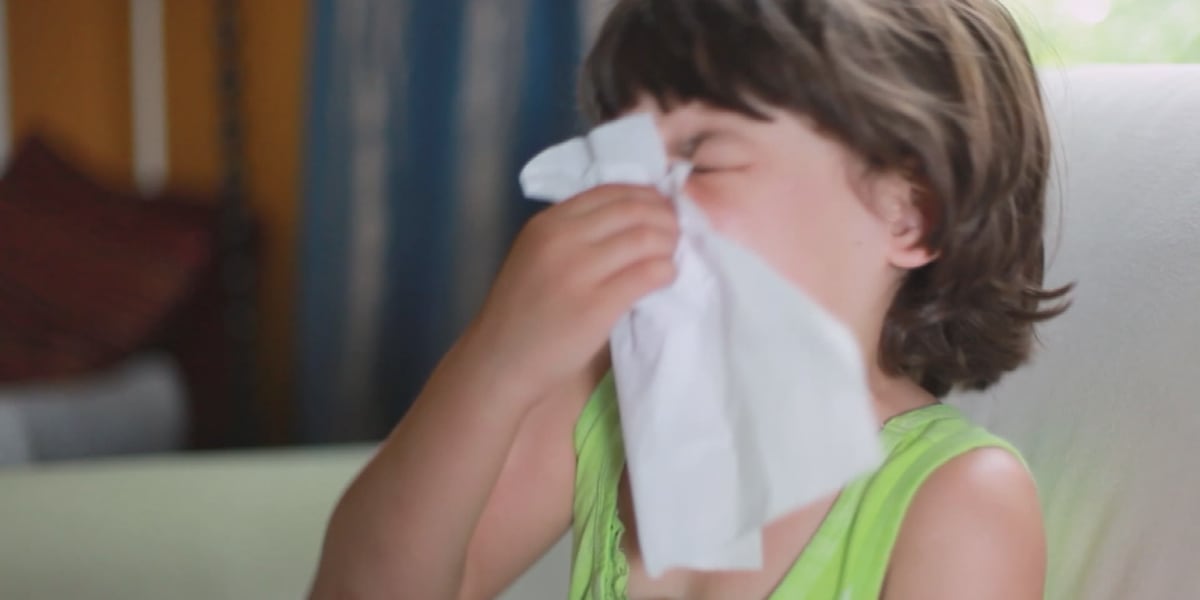Infection
Louisiana doctors, health officials warn of statewide rise in RSV infections
NEW ORLEANS (WVUE) – Louisiana health clinics are seeing a spike in the RSV respiratory infection, along with increases in flu and COVID-19 cases.
Amid more runny noses, sneezing, coughing fits and fevers, doctors told Fox 8 it’s not unusual to see an uptick in cases among adults and children due to the start of RSV season. Respiratory Syncytial Virus (RSV) is a common respiratory virus that usually causes mild, cold-like symptoms. Most people recover in a week or two, but RSV can be serious. Infants and older adults are more likely to develop severe RSV and need hospitalization.
“The RSV season here has arrived,” said Dr. Fred Lopez of the LSU School of Medicine. “Flu also looks like it’s increasing right now.”
Lopez said the official start of RSV season means that — for two weeks in a row — at least 10 percent of the sick patients they’ve seen across the state tested positive for RSV.
Family nurse practitioner Teshawn Ash-House said people often think RSV is more likely in children 7 and under. But she said last season many adults were coming in with the virus. Ash-House expects cases to increase even more as holiday gatherings begin.
“This is the time when we gather with family and friends,” said Ash-House, director of nursing at Urgent Care Eleven. “It’s going to wax and wane, right?”
Lopez said natural immunity leaves younger children and the elderly more susceptible to respiratory illness, but that they can be better protected with vaccines.
“For the first time, this season, we have vaccines to protect adults 60 years of age and older against RSV infection,” Lopez said. “We know they may be more vulnerable to complications of RSV illness. And we have immunizations to protect infants, as well. Infants that are less than 6 months of age and/or have immunocompromising conditions.”
But Lopez said the vaccine used to protect infants currently is in short supply. The Centers for Disease Control, recognizing the shortage, recently amended its recommendation for immunizing infants up to 8 months to vaccinating those up to 6 months, to extend supply.
“For kids, it’s really on backorder,” Ash-House said. “That’s the problem.”
Testing is available to help differentiate whether patients have RSV, COVID-19 or the flu, to help tailor treatment plans.
“If somebody is infected with RSV and they cough, and those droplets fall into your mouth, your eyes or your nose, you can get infected with RSV,” Lopez said. “You can (also) catch it if you touch a surface that’s contaminated with RSV.”
Ash-House said asthmatic patients are prone to more severe symptoms.
“They may get the wheezing, shortness of breath, all of those symptoms,” she said. “But in the typical healthy kid that gets RSV, it’s self-limiting.”
Doctors said in some cases RSV can cause severe complications like inflammation of the small airways of the lungs, as well as pneumonia. Severe infections can lead to hospitalization or death.
Nurses recommend hydration, humidifiers, over-the-counter antihistamines, cough medications, saline nasal sprays, and Tylenol and Ibuprofen for fevers.
Ash-House said in more severe cases, they may prescribe breathing treatments, inhalers and steroids.
In younger patients, symptoms can start with increased irritability and not wanting to take a bottle.
RSV vaccines also are available for patients between 32-36 weeks pregnant. Doctors said it’ll provide immunity to the baby, when born, for about six months.
Nurses remind that if you are sick, you should wear a mask and stay home. They also advise people to wash hands regularly.
RSV patients are generally contagious from 3-8 days, but they also can spread the virus 1-2 days before the onset of their own symptoms.
According to experts, patients with flu are most contagious within the first 72 hours, and might be for the 5- to 7-day duration of their illness. They said once flu patients are fever-free for 24 hours without using a fever-reducing medication, they should be in the clear.
If you don’t feel well, nurses recommend you see a primary care physician or go to an urgent care facility for a test. Rapid RSV tests take about 15 minutes.
See a spelling or grammar error in our story? Click Here to report it. Please include the headline.
Subscribe to the Fox 8 YouTube channel.
Copyright 2023 WVUE. All rights reserved.

